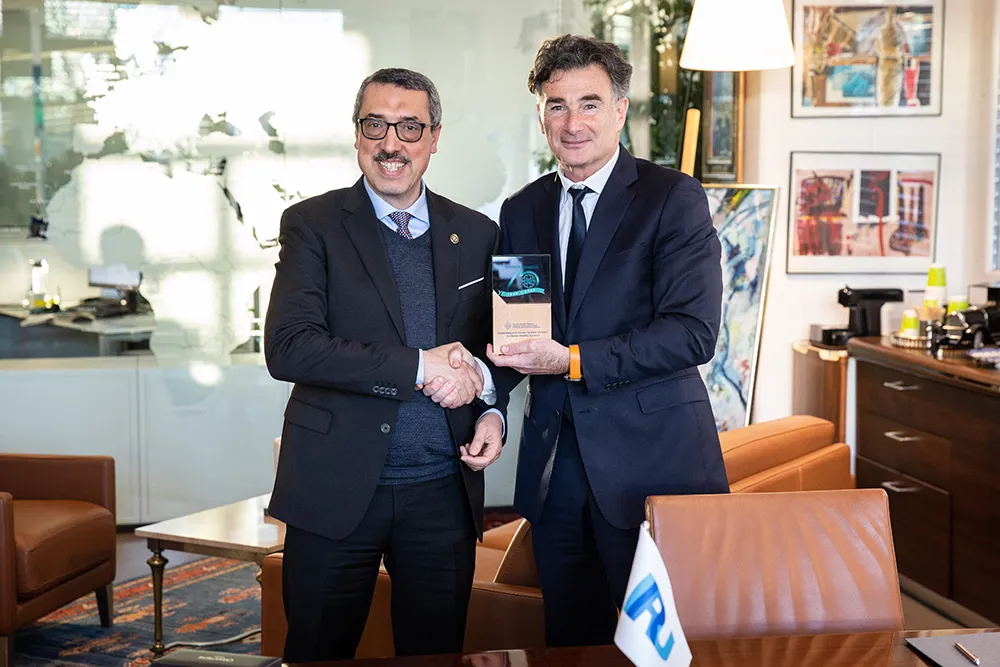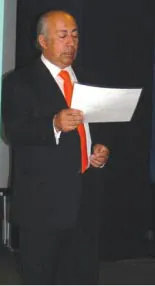A partnership of American road and transport-minded bodies and individuals has delivered an open letter to Congress urging the approval of the multi-year surface transport investment bill. More than 1,000 entities signed the letter from the American Road & Transportation Builders Association (ARTBA) and the U.S. Chamber of Commerce-led Americans for Transportation Mobility (ATM) coalition.
March 15, 2012
Read time: 2 mins
RSSA partnership of American road and transport-minded bodies and individuals has delivered an open letter to Congress urging the approval of the multi-year surface transport investment bill. More than 1,000 entities signed the letter from the American Road & Transportation Builders Association (ARTBA) and the U.S. Chamber of Commerce-led 3952 Americans for Transportation Mobility (ATM) coalition. The ATM’s delivery of the letter, on Wednesday, 25 January, marked the launch of the new ARTBA and ATM advertising and grassroots campaign, 'Make Transportation Job #1,' stressing the need for what it believes is a long overdue piece of legislation.
The current highway and transit authorisation law, known as SAFETEA-LU, expired nearly 850 days ago. The programmes have been operating under a series of short-term funding extensions since October 1, 2009, and the current one ends on March 31 2012.
“Our message to the Congress is simple: ‘It’s time to do your job,” said ARTBA president Pete Ruane. “Pass a properly-funded surface transportation bill to kick-start the economy and get America moving again.”
The ARTBA and ATM coalition is running a six-digit figure ad campaign in Washington and key states and districts around the country over the month of February, including television, radio and on-line ads. The ‘Make Transportation Job #1’ campaign will also include a radio tour and a grassroots initiative during the congressional recess.
ARTBA is supporting the activities of ATM through its ‘Transportation Makes America Work’ (TMAW) campaign, a long-term communications and advocacy programme aimed at building public and political support for new transportation investments. Under TMAW, the association will soon broadcast a television advert featuring transport-related speech excerpts from former Presidents Ronald Reagan and Bill Clinton, while calling on members of Congress to work together to complete action on the bill. The ATM is a nationwide effort by business, labour, transport groups and concerned citizens to advocate for improved and increased investment in the nation’s surface transportation infrastructure.
The current highway and transit authorisation law, known as SAFETEA-LU, expired nearly 850 days ago. The programmes have been operating under a series of short-term funding extensions since October 1, 2009, and the current one ends on March 31 2012.
“Our message to the Congress is simple: ‘It’s time to do your job,” said ARTBA president Pete Ruane. “Pass a properly-funded surface transportation bill to kick-start the economy and get America moving again.”
The ARTBA and ATM coalition is running a six-digit figure ad campaign in Washington and key states and districts around the country over the month of February, including television, radio and on-line ads. The ‘Make Transportation Job #1’ campaign will also include a radio tour and a grassroots initiative during the congressional recess.
ARTBA is supporting the activities of ATM through its ‘Transportation Makes America Work’ (TMAW) campaign, a long-term communications and advocacy programme aimed at building public and political support for new transportation investments. Under TMAW, the association will soon broadcast a television advert featuring transport-related speech excerpts from former Presidents Ronald Reagan and Bill Clinton, while calling on members of Congress to work together to complete action on the bill. The ATM is a nationwide effort by business, labour, transport groups and concerned citizens to advocate for improved and increased investment in the nation’s surface transportation infrastructure.








